By: Ibrahim B Anoba
The individual in African philosophy mostly existed as a reflection of his community. He was seen as a product of his tribe less than he was an independent being. His birth and death were to satisfy the wishes of the gods on earth. Like many tribes in Africa, several cultures according to history put the individual as a unique creation with the purpose of happiness and self-realization.
In traditional Africa, it was best that the individual remained a social being. This view of man as a societal element primarily applied to his identification as a member of a united community in pursuant of collective prosperity with regards for his individual happiness. However, the expansion of groups during territorial wars and migration, increased community populations while conflict of interests among groups and individuals led to the gradual disassociation from the usual collective interest.
Hence, the idea of the individual as a communal element decreased as societies became bigger. During the hunting and gathering when community populations were very small, it was easy to commit everyone to a unified goal even as few members harbored personal interests. However, as people integrated and population augmented, the individual began to isolate itself because of the geometric increase in interests of new members against the collective. In some cases, people left their villages in pursuant of personal goals. Even, members of ruling families deserted their clans due to conflict of interest with their kin only to establish new territories later, and the conflict of interest continued to repeat itself prompting the definite decrease of collectivism.
Although, some African societies like the Xhosa and the Zulu emphasized the ideals of mutuality and community before the individual, there still existed self-interest. Classical liberals argued for a system that observes the society in light of its distinct members, for a society has no existence beyond the individuals that comprises it, while it is in itself a composition of different interests (Butler 2013). And the socio-economic consciousness of the society is the summary of individual consciousness. Friedrich Hayek puts it clear when he explained that the “associations within civil society exists for specific end while the civil society has no purpose; it is the undersigned, spontaneous emerging result of all those purposive associations” (Hayek 1988).
Despite this similarity in purpose, contentions still exist between the two folds on grounds of economic and social morality among Africans. On the economic fold, classical liberals outrightly argued for a free market economy chiefly run by individual choices and price, and this was a position common in most economies in traditional Africa. Markets were open and less regulated. In centralized communities such as the Buganda (Uganda), Hausa/Fulani (Nigeria) Akan (Ghana) and the Zulu (South Africa), there were large and open markets such that it attracted participation from communities hundreds of miles away. Trade ensued among communities in their specialized industries with limited or no restrictions, and one can safely deduce elements of David Ricardo‟s Comparative Advantage Theory – a cardinal in classical liberalism – existed in these communities even before it was theoretically developed in Europe.
One similar end to both African humanism and classical liberalism is in their emphasis on peace, progress and respect for human dignity through moral justifications. Though, the interpretation of these morals and their justifications is what differs. In traditional Africa, morality was whatever standard the community agreed to guide general conduct. To classical liberals, it is the respect for individual interests and choices, and both existed as the holding force for societal consciousness. In the former, values inherited through generations like equity and justice ensured a fair use of power and obedience to law to avoid conflicts among members and communities. Similarly, in the later, writers like Ludwig von Mises, Adam Smith and Jean-Baptiste Say stressed the anti-imperialist and anti-warfare stance of classical liberalism.
They saw economic liberty of communities in a fair market system as a way to avoid wars and foster peace. In other words, traditional Africans percept morality as only attainable through inherited values, while classical liberals saw it in form of the peaceful decisions of individuals. Another misconception is the purported rejection of the principle of cooperation by classical liberals, which is in fact emphasized in their advocacy. The critics argued that market competition will eventually lead to unfair distribution of wealth and that African states were not ready for such experiment.
Conversely, classical liberals saw cooperation as important as competition is to the economy. American libertarian writer David Boaz explained that both “cooperation and competition are essential elements of the simple system of natural liberty, and most humans cooperate with one another than they do competing” (Boaz 2015).
In reality, cooperation is bound to ensue in a free-market economy because individuals cannot provide all their needs themselves and they must interact with others that can provide them in a mutually fair exchange. Then, the cycle goes round to build a system dependent on fair cooperation. Education, transportation, technology, entertainment and especially food are variables too complex in contemporary societies for an individual to produce. That an individual needs these to survive makes cooperation inevitable. Besides, cooperation gets people their desires the way they please because, production and consumption capacities vary among individuals and it remains best when people determine these themselves.
It is much safer than to have people equally providing the general need irrespective of their interests or sharing them equally regardless of their needs. Such scenario has invoked destructive economic bubbles in many African states.
The first generation writers on African philosophy falsely interpreted goodwill and solidarity to be state welfarism and collectivism. Even present writers usually claim capitalism has bitterly failed in Africa due to its emphasis on „self-interest‟. An average African still see the placement of self-interest above the collective as antithetical to African morality and it will ultimately monopolize dividends of the economy to a privileged few, whereas, it is the exact opposite.
In a society where people serve the interest of others at the detriment of theirs, such society rests on an economic thread because there are always a group that would not believe in serving others due to ambition or greed. This group will get exceedingly rich while others are busy working in their favour, and those that remained devoted the common-good will eventually get exploited and poor. On the long run, the poor group will likely react to such imbalance with a potential of instigating an economic disaster.
This scenario would not occur in a lawful and competitive system where everyone was self-interested because, value and profit is a win-win of a free market economy. To be self-interested is not to be greedy or exploitative; it is fairly pursuing one‟s desires for a betterment of life. Moreover, the individual best answer the question of his self-interest. Equally, many African academics remain wrong in their notion that contemporary African states practice capitalist systems copied from Western economies (Akpan 2004; Obot 2004; Abiodun 2015).
The first lapse is that the so-called African capitalist economies are in fact social-welfarist states with policies that negate the free market economy of true capitalism. Their economic systems are acutely crony. A cabal of wealthy men dominates key industries with state legislations protecting them. Such legislations usually include the imposition of high tariffs on industrial supplies to hold back emerging firms in specific industries. They also raise taxes on small businesses with many of their cronies often guilty of tax evasion.
They enact stringent policies to limit the registration of new firms and restrict foreign investment in these industries, all in the quest of protecting the interest of the wealthy few. In return, the cabal either heavily finances their political quests or act as their economic joker. These acts are common in the energy, petroleum, transportation and mining sectors of majority modern African states and outrightly negate anything true capitalism stands for.
Unbiased rankings and reports on economic policies of these African states continues to reveal series of economic patterns correlative to crony capitalism. In a free market economy on the other hand, policies that favours one group at the detriment of others would rarely exist, because true capitalism means giving everyone equal opportunity at individual pace without chauvinism or protectionism. Every individual would have equal access to market; tax rates on small businesses are relatively low and entrepreneurs can access foreign markets for exchange of materials and finished products. It is a complete opposite of a government controlled socialist system or a crony capitalist arrangement. Countries like of Coted’Ivore, Mauritius and Mozambique are presently experiencing massive economic growth due to commendable efforts towards a free market economy.
On social morality, a peculiar quality of the African life is the zeal to preserve culture and traditions even when in conflict with individual interest. As noted earlier, there was no unified lifestyle in traditional Africa except the common exhumation of culture and ancestral practices. In some communities, the ruling elites determined what was socially morally and what was not. In others, individuals had liberty to lead their desired life insofar it respects the liberty of others.
However, as generations, evolved, foreign influence penetrated the rigid cultures and newly inherited lifestyles influenced social moral standards. For example, practices like monarchy; forbidden of estate; genital mutilation; facial and body markings; execution of homosexuals and twins among others used to be culturally moral and formed the nucleus of social existence. But the effects of cultural interactions as communities expanded with time persistently redefined socially moral behaviors.
This is reflective in irregular changes in value and culture of modern African societies. Positions such as predetermined behavioural responsibility and blind adherence to authority ranked high decades ago, but revolts against authoritarianism, tyranny or subjective cultures in recent years corroborates this declination. Sorry enough, many traditionalists still see classical liberal principles as rather anarchist even as some African communities flourished under anarchy. Or adversative to traditional African principles: a sort of threat to Africa‟s historical identity.
Unlike the total anarchy assumption, classical liberals proposed an impartial system of justice in the custody of the state, but in trust, with some monopoly of force (if needed) to guarantee relative balance (Butler 2015). This was the exact structure in most of traditional Africa. Leaders and governing councils were guardians of values and preserved the justice system through impartial adherence to laws while public revolt was an option against tyranny.
Like many other race in human history, traditional Africans despised tyranny. The central authority only existed as representative of the gods on earth, to guide the living in the right conducts only. And as Otto Lehto explained, “in addition to being a doctrine of maximizing free and voluntary human cooperation, classical liberalism is a doctrine of legal limits to coercive actions” (Lehto 2015).
In African tradition, the individual was as important as life itself, and the respect for his dignity, a virtue. The only difference was that they saw the realization of individual prosperity as more realistic when embedded in the prosperity of his community. Even Kenneth Kaunda, a staunch African humanist agreed when he said:
“I am deeply concerned that this high valuation of Man and respect for human dignity, which is a legacy of our [African] tradition should not be lost in the new Africa. However “modern” and “advanced” in a Western sense the new nations of Africa may become, we are fiercely determined that this humanism will not be obscured. African society has always been Man-centred. We intend that it will remain so.” (Eze 1997, 42).
His submission serves well an historical correction for contemporaries.
REFERENCES
1. Akpan, N. 2015. “Structure of Self-Organized Traditional Financial Institutions in Nigeria: The Case of Etibe”. In, Nigerians and their Cultural Heritage, edited by Akpan U. Akpan and Abiodun J. Oluwabamide, 148-154. Lagos: Lisjohnson Resources. (Akpan 2015)
2. Boaz, David. 1997. Libertarianism: A Primer. Detroit: Free Press.(Boaz 1997)
3. Butler, Eamonn. 2015. Classical Liberalism – A Primer. London: Institute of Economic Affairs & London Publishing Partnership Ltd.. (Butler 2015)
4. Eze, C. E. 1997. Postcolonial African Philosophy. A Critical Reader. Massachusetts: Blackwell Publishers. (Eze 1997, 42)
5. Hayek, Friedrich. 1988. The Fatal Conceit: The Errors of Socialism. Chicago: University Of Chicago Press. (Hayek 1988)
6. Lehto, Otto. 2015. “The Three Principles of Classical Liberalism (From John Locke To John Thomas.” PhD diss., University of Helsinki. (Lehto 2015)
7. Obot, J.U.. 2004. “Nigeria: The Land, its Resources and the People.” In, The Nigerian Nation: Nigerian Peoples and Cultures, edited by M.B. Abasittai, I.I. Ukpong and G.J. Even own. Uyo: University of Uyo Press. (Obot 2004)
Published in Africanliberty.org MAY 21, 2017: http://www.africanliberty.org/a-libertarian-thought-on-individualism-and-african-morality-by-ibrahim-anoba/


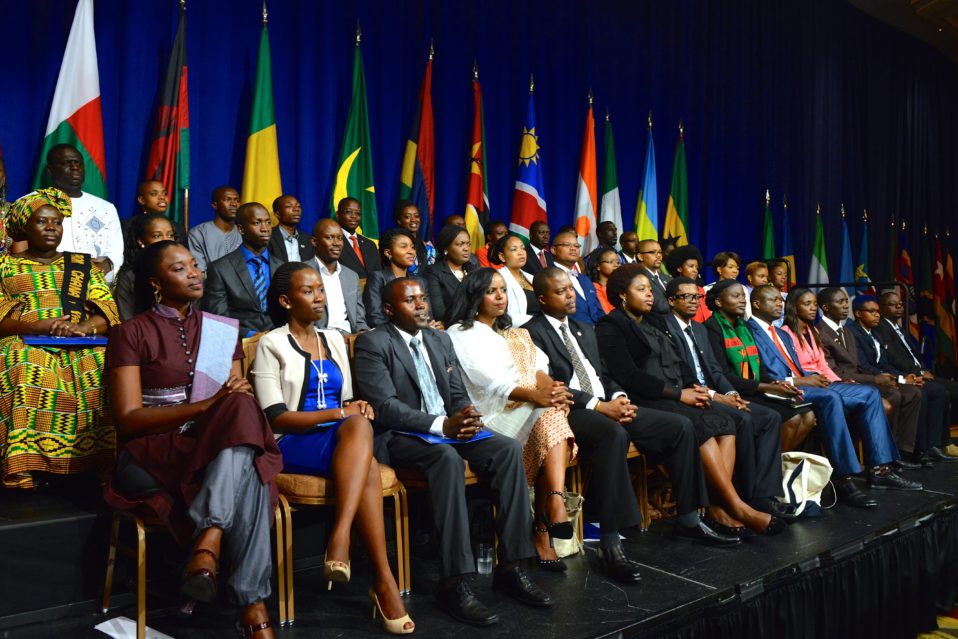
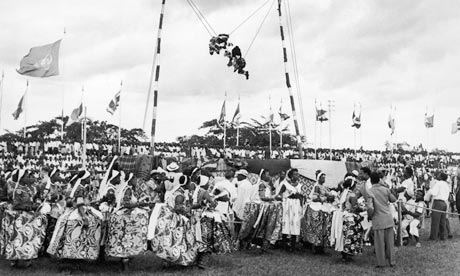
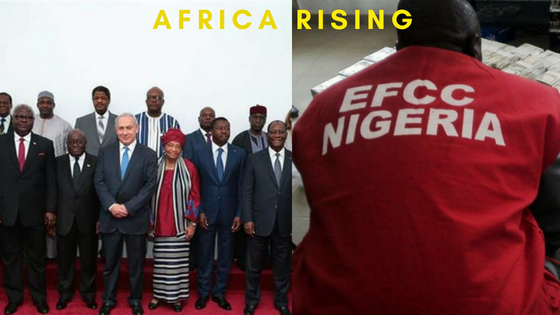
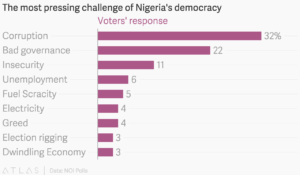
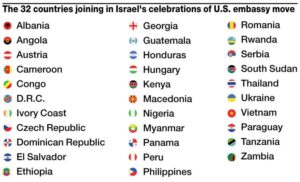
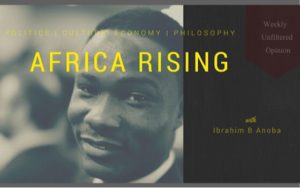
Recent Comments